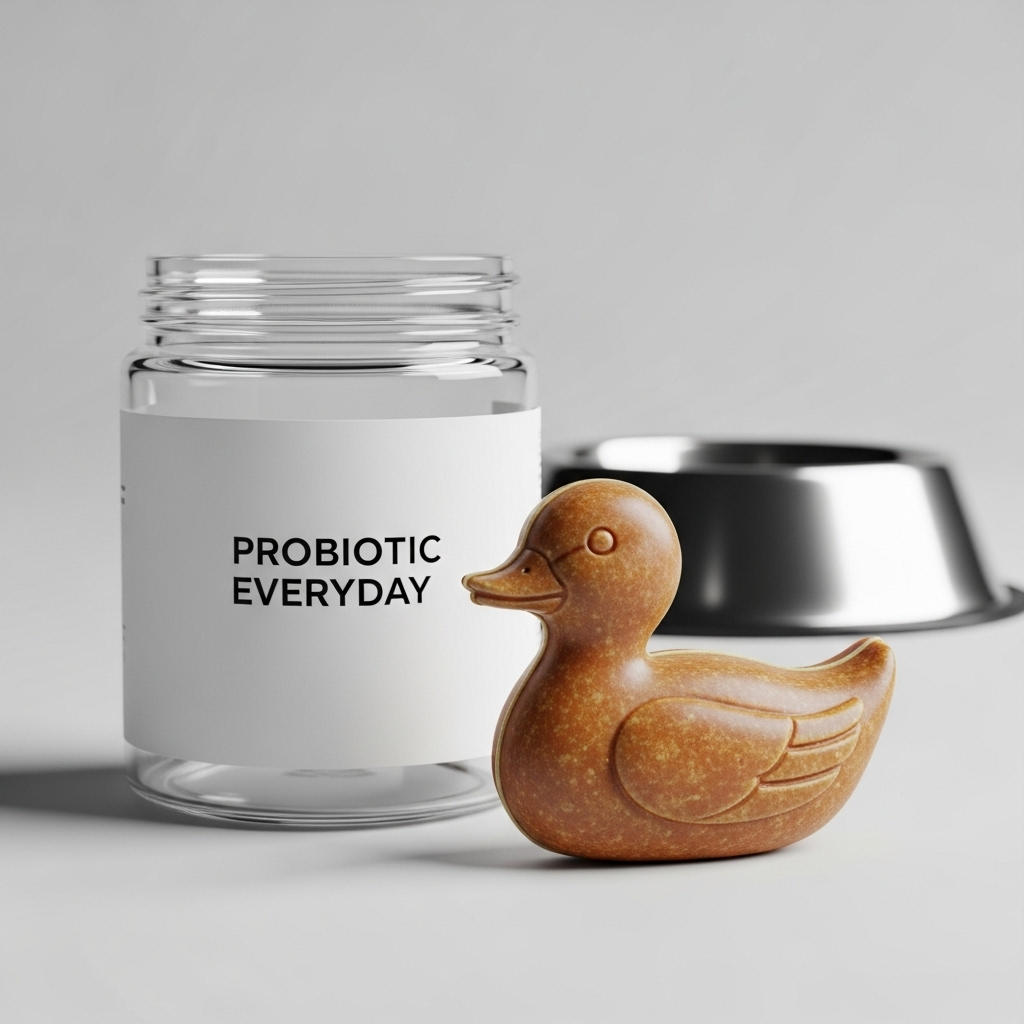VetriScience Probiotic Everyday Chews: Hands-On Review

Probiotics are a popular addition to many dogs’ daily routines. I tested VetriScience Probiotic Everyday Chews to evaluate palatability, ease of use, potential benefits, and safety for typical pet owners. This hands-on review focuses on what to expect, who may benefit, and how to use these chews responsibly alongside veterinary care.
What these chews are and how they work
Probiotic chews deliver live beneficial bacteria intended to support digestive balance and gut health. They work by introducing strains of microbes that can help stabilize the intestinal environment, support digestion, and compete with undesirable bacteria. With any supplement, results vary by individual dog, underlying health status, diet, and consistency of use.
Hands-on impressions: flavor, texture, and administration
First impressions
Out of the bag, VetriScience Probiotic Everyday Chews have an aroma similar to other soft chews — mildly savory with hints of liver or meat flavoring. Packaging is resealable, which helps keep chews fresher between uses.
Palatability
In my experience with several dogs (varying sizes and preferences), these chews were generally well accepted. Most dogs took them readily from the hand, and they can be given whole or as a training treat. If your dog is a picky eater, break a chew into smaller pieces mixed with food to increase acceptance.
Texture and dosing
The chews are soft and pliable, making them easy to cut for smaller dogs or to hide in food or a toy. As with all supplements, follow the dosing instructions on the product label or your veterinarian’s directions. If you are unsure about the correct amount for your dog’s weight or condition, check with your vet before starting.
Observed effects and timeline
In generally healthy dogs given these chews daily, noticeable improvements in stool consistency, reduced occasional gas, or better appetite can sometimes be observed within a few days to a few weeks. For chronic or serious gastrointestinal issues, probiotics may be one piece of a broader plan and results can take longer. Keep expectations realistic: probiotics support gut balance but are not a cure-all.
Safety, side effects, and special considerations
Common mild side effects
- Short-term increased gas or mild loose stool as the gut microbiome adjusts.
- Rare refusal by a very picky dog — try smaller pieces or a different format if that happens.
When to consult a vet first
- If your dog is immunocompromised, critically ill, or on immunosuppressive medications.
- If your dog has persistent vomiting, severe diarrhea, blood in stool, or other signs of serious illness.
- If your dog is pregnant or lactating — check with your veterinarian.
How these chews fit into a dog’s care plan
Probiotic chews can be a convenient maintenance option to support gut health for dogs on a regular diet, those recovering from mild digestive upset, or dogs that experience occasional dietary indiscretions. They can often be used alongside other supplements (like prebiotics or digestive enzymes) but coordinate with your veterinarian to ensure compatibility with any medications or medical conditions.
Storage and shelf life
Storage instructions vary by product. Many probiotic chews are shelf-stable at room temperature but may recommend keeping the container sealed and stored in a cool, dry place. Always check the product label for expiration date and specific storage guidance. Discard if chews become moldy, sticky, or change odor markedly.
Value and who should consider them
These chews are best for pet owners who want an easy, tasty daily supplement that their dog will accept without fuss. If you’re managing a specific medical condition (chronic inflammatory bowel disease, severe infections, etc.), probiotics can be part of the plan but should be used under veterinary guidance. For routine support after diet changes, travel, boarding, or short courses of antibiotics, a probiotic chew may be helpful.
Pros and Cons
| Pros | Cons |
|---|---|
| Generally palatable and easy to give | Results vary; not a guaranteed fix for severe GI issues |
| Convenient single-format daily dosing | May cause mild, short-term GI changes in some dogs |
| Useful for maintenance and mild digestive support | Not a substitute for veterinary care when problems are serious |
FAQ
1. Are VetriScience Probiotic Everyday Chews safe for all dogs?
For most healthy dogs, yes when used as directed. Dogs with compromised immune systems or serious illnesses should only receive probiotics under veterinary supervision.
2. How long before I see improvements?
Some owners notice changes in stool consistency or gas within a few days; for more meaningful improvements it can take a few weeks. If there is no improvement, or symptoms worsen, stop the product and consult your vet.
3. Can they be used with antibiotics?
Probiotics are often used alongside antibiotics to help maintain gut balance, but timing can matter. Ask your vet about whether to give the probiotic during antibiotic treatment and whether to space doses apart.
4. Do these chews need refrigeration?
Storage instructions depend on the specific product formulation. Check the label for storage recommendations. Many formulations are shelf-stable, but follow the manufacturer’s guidance.
Key Takeaways
- VetriScience Probiotic Everyday Chews are a convenient, palatable option for daily gut support in many healthy dogs.
- Expect variable results; some improvement may appear within days, but consistent use over weeks is often needed.
- Mild GI changes can occur initially; stop use and consult your vet if severe or persistent symptoms appear.
- Always follow label dosing and consult your veterinarian for dogs with health issues, on medications, or for special life stages (puppies, pregnant dogs).
- Supplements support but do not replace professional veterinary diagnosis and treatment.
Disclaimer
This review is informational and based on hands-on impressions and general knowledge about probiotic supplements. It is not a substitute for professional veterinary advice. Always consult your veterinarian before starting any new supplement, especially if your dog has underlying health conditions or is taking medications.

Leave a Reply